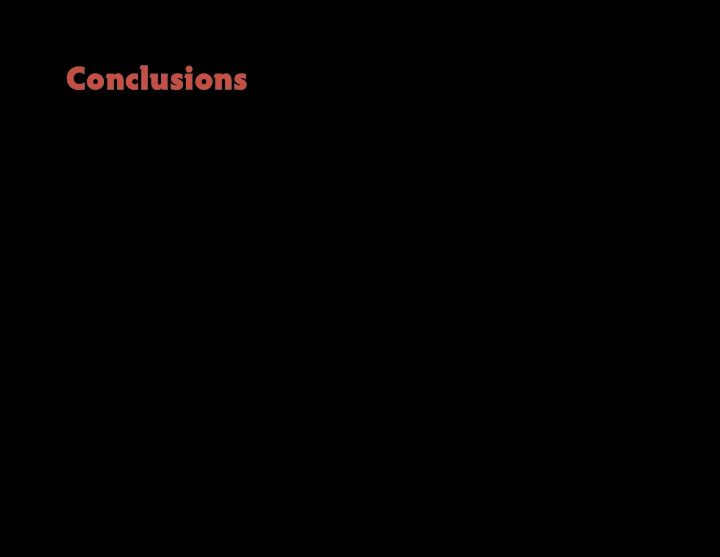

Conclusions 09.15.11 || English 1302: Composition & Rhetoric II || D. Glen Smith, instructor
Conclusion Strategies A basic understanding of the conclusion: This section of the essay does more than review main topic points. • reinforces your thesis through reviewing the original declaration utilizing new phrasing and words; never simply duplicate the thesis • stresses your most important point • reinforces the paper’s initial purpose and any new concepts you created • provides a sense of closure to the essay 2 09.15.11 || English 1302: Composition & Rhetoric II || D. Glen Smith, instructor
Conclusion Strategies Depending on circumstances the conclusion may exceed 5 sentences. • however, do not quote or paraphrase outside resources in the last paragraph • the material presented here should echo the previous body paragraphs • do not introduce newer topics you have not already discussed • however, do present strongest evidence which sums up previous arguments • or which summarizes your main ideas • keep in mind, your audience will best recall your last paragraph; if you are lucky they may remember some key details from your research Close with a series of sentences that will stay with your readers. 3 09.15.11 || English 1302: Composition & Rhetoric II || D. Glen Smith, instructor
Conclusion Strategies There are multiple options available for closure: • review main points without repeating word-for-word topic sentences— you want to avoid repeating information your readers have already discovered • recommend a course of action to your audience— in this manner you can suggest a way of remedying a controversial issue or propose a compromise • predict a future resolution or confmict based on your research Avoid: • using cliché phrases to open the fjnal paragraph: ‘In conclusion...’ • do not close with a cliché expression or artifjcial phrase: ‘This goes to show, one should never judge a book by its cover.’ 4 09.15.11 || English 1302: Composition & Rhetoric II || D. Glen Smith, instructor
Conclusion Strategies Closing Transition Words or Phrases: • as a result to summarize key points therefore to sum up the situation to review ultimately to conclude fjnally • These keep the reader aware of your strategy throughout the essay. Transitions subconsciously alert the reader what pattern you are using. 5 09.15.11 || English 1302: Composition & Rhetoric II || D. Glen Smith, instructor
Conclusion Strategies From past readings: “As he buckled the swollen belt suddenly my groin felt the chill of death.” E.B. White || “Once More to the Lake” “Looking back once, I saw the mountain and came away.” N. Scott Momaday || “The Way to Rainy Mountain” “My dream of the jungle was not without its reward.” Isabel Allende || “The Amazon Queen” My proposal would lead us more quickly to boredom and away from our current gratifying excitement—and ultimately perhaps to a wiser use of alternating current. Arthur Miller || “Get it Right: Privatize Executions” 6 09.15.11 || English 1302: Composition & Rhetoric II || D. Glen Smith, instructor
Recommend
More recommend